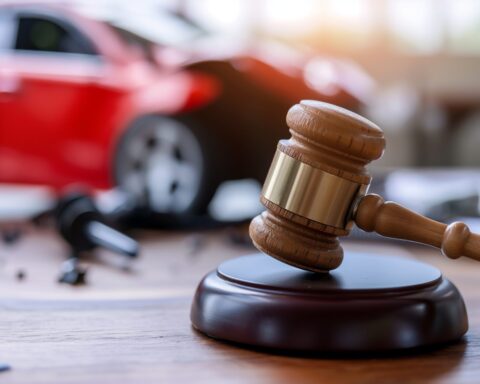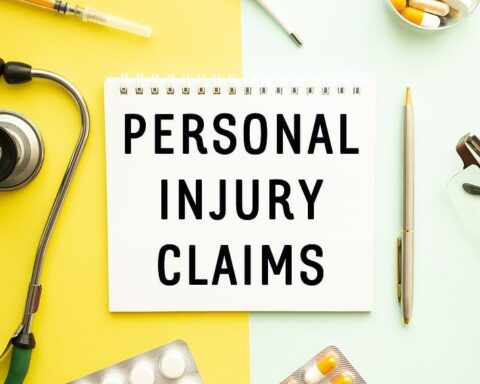A car accident can leave you feeling shaken, overwhelmed, and unsure of what to do next. One of the most important steps after the crash is speaking with insurance companies.
What you say can significantly impact your claim, especially if fault is being disputed. Knowing how to communicate effectively, protect your rights, and avoid common mistakes can help ensure you receive fair compensation for your injuries and damages.
This guide walks you through how to talk to insurance companies after an accident, and what to avoid. The Chicago car accident attorneys at Cooney & Conway walk victims through every step of the legal process.
Step 1: Prioritize Safety and Get Medical Care
Before contacting any insurance company, make sure you’re safe and that you’ve received any necessary medical attention. Even if you don’t feel seriously injured, visit a doctor promptly. Some injuries, like whiplash or concussions, may not show symptoms immediately.
Documenting your medical care early on strengthens your claim and prevents insurers from arguing that your injuries weren’t caused by the accident.

Step 2: Notify Your Own Insurance Company Promptly
Most policies require you to notify your insurer as soon as possible after a crash. Call your insurance company and provide only the basic facts:
- The date, time, and location of the accident
- The other driver’s name, contact info, and insurance company
- A brief description of what happened
Do not speculate about fault or make assumptions. Keep your tone calm and factual. If you’re unsure about something, it’s fine to say you don’t know.
Step 3: Be Cautious When Speaking to the Other Driver’s Insurer
The at-fault driver’s insurance company may contact you quickly, often within days. Their goal is to gather information they can use to reduce or deny your claim. Keep these tips in mind:
- Do not give a recorded statement until you’ve spoken with an attorney. Recorded statements can be used against you later.
- Avoid discussing your injuries in detail until you’ve been fully evaluated by a doctor. Injuries often evolve over time.
- Stick to the facts of the crash and avoid speculation or opinions.
Remember: you are not obligated to speak with the other driver’s insurance company immediately without legal advice.
Step 4: Watch What You Say About Fault
One of the biggest mistakes accident victims make is unintentionally admitting fault. Even casual remarks like “I didn’t see them coming” or “I’m sorry” can be twisted to imply liability.
Instead:
- Focus only on what you directly observed (“I was driving at the speed limit in my lane.”)
- Avoid sharing your opinions on who caused the crash
- Let the investigation and evidence determine fault
If you’re unsure what to say, politely tell the adjuster that you prefer to wait until the facts are fully reviewed.

Step 5: Keep Detailed Records
Insurance companies rely heavily on documentation. Protect yourself by keeping:
- Copies of police reports and medical records
- Photos of the vehicles, the scene, and your injuries
- Bills, receipts, and any out-of-pocket costs
- Notes of all conversations with insurance representatives (include names, dates, and what was discussed)
This paperwork can be invaluable if the insurer challenges your claim later.
Step 6: Understand the Tactics Insurance Companies Use
It’s important to know that insurance companies are for-profit businesses. Adjusters may seem friendly, but their job is to save their company money. Common tactics include:
- Offering quick but low settlements before you know the full cost of your injuries
- Asking confusing questions designed to make you contradict yourself
- Delaying the claims process to pressure you into accepting less
Knowing this ahead of time helps you stay calm and avoid agreeing to something that isn’t in your best interest.
Step 7: Consider Getting Legal Help
If your injuries are serious, if fault is disputed, or if you feel overwhelmed by the claims process, consider speaking with a personal injury attorney. An attorney can:
- Handle all communication with insurance companies
- Protect you from saying something that could hurt your claim
- Negotiate for a fair settlement on your behalf
Most personal injury lawyers offer free consultations and only get paid if they win your case, so there’s little risk in asking for advice.

Step 8: Don’t Sign Anything Without Reviewing It
Insurance companies may send you forms, releases, or settlement offers. Read everything carefully and never sign documents you don’t fully understand. Signing a release too early could prevent you from seeking more compensation later if new injuries appear or medical costs increase.
If you’re unsure, have an attorney review the documents before you sign.
Talking to insurance companies after a car accident can feel intimidating, but you have more control than you might think. By staying calm, sticking to the facts, avoiding speculation about fault, and seeking professional guidance when needed, you can protect your rights and improve your chances of receiving fair compensation.
Remember: insurance companies are skilled at minimizing payouts, but you don’t have to face them alone.









